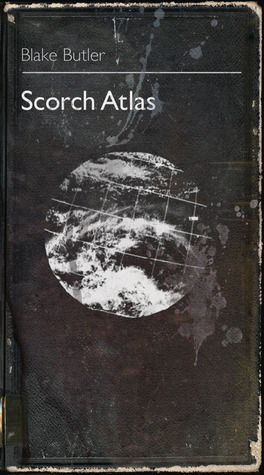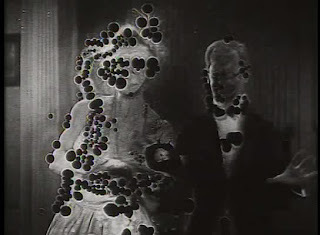What do you think?
Rate this book


188 pages, Kindle Edition
First published January 1, 2009
Overhead the sky was melting, the cracked cream color rubbing off in cogs of brine. The fields far ahead of me in endless pudding, studded here and there with what had been: homes and houses, hair and heirlooms, habits, hallways, hauntings, hope. (p.124)
So many doors forever. There were never enough. Each door had several locks. One lock was combination. Another required keys. Another was a simple side latch. Another was strictly ornamental. Another you could open by whispering the right thing to it at the right time, which is the type of lock most humans have. (p.56)
Meanwhile, by now, the cities lay covered in chrysalis, silken tents stretch across expressways, over homes. Our front door sealed shut with hive building. The cocoons crushed each time a thing moved. We waited. We blink-eyed through the night. In the end, the great unveiling: ten billion butterflies humming in the sun, fluttering so loud you couldn't think. (pg.58)
I’ve never done drugs besides drinking. I tried a cigarette once and hated it though when I’m drunk I’ll puff on them and blow the smoke. Drugs aren’t for my demeanor; I feel jacked up on eating and walking and laying on the floor. I get the experience of drugs from going to the grocery store or using a cell phone.
Blake Butler consegna al lettore un’antologia di racconti apparentemente indipendenti, ma interconnessi da un forte senso del perturbante e una solitudine di fondo, ma anche dall’associazione di alcune immagini che si ripetono come, ad esempio, bambini dall’aria non proprio innocente e un considerevole numero di spore.
Per ognuna di queste storie riserva delle sorprese soprattutto nella forma, anzi proprio lì sta l’originalità del libro.
Una scrittura fortemente sensoriale che si veste di prosa poetica, riporta storie molto crude, grottesche e tremendamente realistiche, a tratti, stomachevoli, tuttavia non noterete mai un coinvolgimento da parte dell’autore. C’è un approccio disincantato e distaccato, nel narrare di certi orrori… che quasi restano avvolti da una patina “asettica”.
L’edizione cartacea, per la quale ringrazio Pidgin Edizioni per la copia omaggio, presenta una peculiarità davvero speciale; “Atlante delle ceneri” è il titolo e le pagine, pertanto, presentano i bordi anneriti -quasi fossero state bruciacchiate – e il colore interno è sui toni del grigio, inoltre, in base al titolo del suddetto racconto la filigrana della pagina è perfettamente in tema.
Un viaggio lucido e, al contempo, surreale … Ci si trova giocoforza avviluppati da un’atmosfera di devastazione, con virate fortemente weird. Penso che l’autore abbia colto a piene mani da uno scrittore che stimo molto: Thomas Ligotti.
Una prosa bruciante e camaleontica, talvolta frammentata – data la diversa lunghezza delle composizioni - dimostrando un’affinità non scontata con lo strumento narrativo rappresentato dal racconto breve.
Una realtà riconoscibile solo scostando il velo deformante di un’ostilità crescente verso un mondo allucinato: città senza tempo e senza nome, giorni vuoti, una piccola folla di personaggi infelici che vagano su una terra morente, ormai privi di ogni speranza. Un mondo dove – di tua spontanea volontà - non vorresti mai metter piede.
Girata l’ultima pagina resta addosso al lettore una sensazione strana, sporca, come se gli fosse rimasto addosso qualcosa che non gli appartiene.
